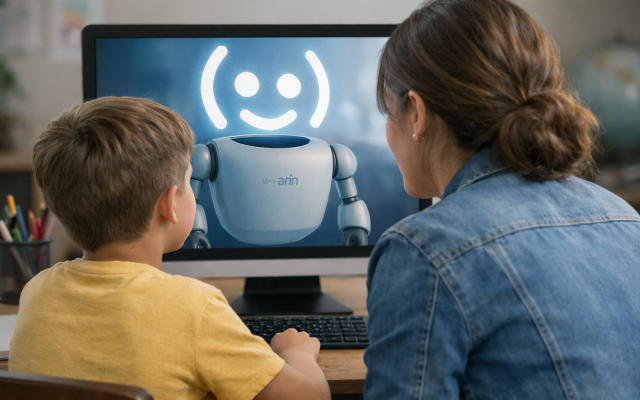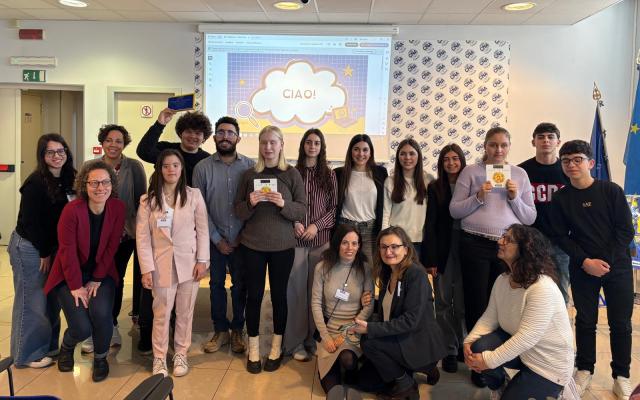4 min.
Robotics and new technologies increasingly attract more students
Redattore sociale, 14 March 2011
From Fossano (cn) to Pescara, Technical Institutes are in trouble: notwithstanding a 30% increase in enrollment, public funds are plummeting. So, students participate in Robotics competitions, win prizes and find jobs when they graduate.
ROME- Robotics and new technologies increasingly attract more students to Italian technical institutes, but public investments are plummeting and the schools have to turn to self-taxation or banks to find money. From Piedmont to Abbruzzi, the paradox is recounted by some of the participants in RomeCup 2011, the International City of Rome Robotics Trophy, promoted by the Fondazione Mondo Digitale, which is currently underway in Rome. Participants include Italian schools, universities and companies. From Itis Vallauri (Fossano, Cuneo) to the istituto Alessandro Volta (Pescara), it’s always the same story. During the course of the last year, enrollments have increased by 30% over the year before, but public funding has diminished drastically. The teachers accompanying the students to the event in Rome speak about the situation, torn between pride for their students’ work and bitterness for the state of technical school. “This year our enrollment has increased by 36%,” explains Antonio Briator, a teacher of Mechanics and Machinergy at Itis Vallauri (Fossano). “This means that, at least locally, families have started investing in technical institutes again.” The Fossano school has 1200 students and 150 teachers. It has 26 laboratories that require more funding than is available. “The ministry has cut off our funding,” explains Mario Freni, Administrative Director of the Institute, “we are turning to foundations and presenting project calls.” This is producing good results. In 2010, external founding amounted to €100,000 as opposed to €40,000 state funding.” And the differences with the past are clear. “In 1992, we had 10 million lire for each class, now, in 2010, we have €1000 per class. In 1992, we had 300 million lira for the same number of students that we now get €48,000. And all of this while enrollment has been on the increase over the past two years. And next year, we will have 373 students respect to last year’s 270.”
The situation is no different many kilometers away. Renzo delle Monache, Systems and Automation Professor at itis Alessandro Volta in Pescara, is at the RomeCup to present his own robotics project just a few stands down from the Fossano school. Teachers raised the money themselves to allow the students at Itis Pescara to participate in the competitions and purchase necessary laboratory equipment. “We are subsisting on our teacher’s sacrifices,” explains delle Monache. “In order to purchase 4 robot kits that cost €300 each, we have had to use school funds, which means that teachers have to make sacrifices and not get paid for overtime.” Funds are low in Pescara, too. “They have diminished drastically, especially during the course of the last year. Even the money necessary to pay for substitute teachers is low. In fact, we have €250,000 less than we need in our budget. Today, the school has 1100 students and enrollment is increasing. “Enrollment has increased by 30%,” points out delle Monache, “students have increased from 200 to 270, a net change with respect to the schools that were most popular."
However, notwithstanding the economic hardships, the results are coming in. The Fossano school has already won various editions of the national mechanics and electronics competitions. In 2006, they won the first prize in the mechanics category and in 2010 took both prizes home. The Pescara school is also paving its route towards success, reaching the semifinals in Vicenza and participating in the upcoming national competition in Catania. And its not just competition results, either. The most significant achievement is the success that the students obtain. “We conduct a survey on Fossano graduates every two years," explains Briatore, "so we always no what they are up to. In terms of mechanics, electro-technical and computer graduates, more than 67% have found a good job.” And the same is true in Pescara. “We have a great relation with companies,” explains delle Monache, “We have up to 30 students attending specialization stages each year. From mechanics to electro-technics. And many students are called back because they produce excellent projects.” (ga)



